Lei Shu
Nanjing Agricultural University
ProDisc-VAD: An Efficient System for Weakly-Supervised Anomaly Detection in Video Surveillance Applications
May 04, 2025Abstract:Weakly-supervised video anomaly detection (WS-VAD) using Multiple Instance Learning (MIL) suffers from label ambiguity, hindering discriminative feature learning. We propose ProDisc-VAD, an efficient framework tackling this via two synergistic components. The Prototype Interaction Layer (PIL) provides controlled normality modeling using a small set of learnable prototypes, establishing a robust baseline without being overwhelmed by dominant normal data. The Pseudo-Instance Discriminative Enhancement (PIDE) loss boosts separability by applying targeted contrastive learning exclusively to the most reliable extreme-scoring instances (highest/lowest scores). ProDisc-VAD achieves strong AUCs (97.98% ShanghaiTech, 87.12% UCF-Crime) using only 0.4M parameters, over 800x fewer than recent ViT-based methods like VadCLIP, demonstrating exceptional efficiency alongside state-of-the-art performance. Code is available at https://github.com/modadundun/ProDisc-VAD.
Dr Genre: Reinforcement Learning from Decoupled LLM Feedback for Generic Text Rewriting
Mar 09, 2025Abstract:Generic text rewriting is a prevalent large language model (LLM) application that covers diverse real-world tasks, such as style transfer, fact correction, and email editing. These tasks vary in rewriting objectives (e.g., factual consistency vs. semantic preservation), making it challenging to develop a unified model that excels across all dimensions. Existing methods often specialize in either a single task or a specific objective, limiting their generalizability. In this work, we introduce a generic model proficient in factuality, stylistic, and conversational rewriting tasks. To simulate real-world user rewrite requests, we construct a conversational rewrite dataset, ChatRewrite, that presents ``natural''-sounding instructions, from raw emails using LLMs. Combined with other popular rewrite datasets, including LongFact for the factuality rewrite task and RewriteLM for the stylistic rewrite task, this forms a broad benchmark for training and evaluating generic rewrite models. To align with task-specific objectives, we propose Dr Genre, a Decoupled-reward learning framework for Generic rewriting, that utilizes objective-oriented reward models with a task-specific weighting. Evaluation shows that \approach delivers higher-quality rewrites across all targeted tasks, improving objectives including instruction following (agreement), internal consistency (coherence), and minimal unnecessary edits (conciseness).
Improve Mathematical Reasoning in Language Models by Automated Process Supervision
Jun 05, 2024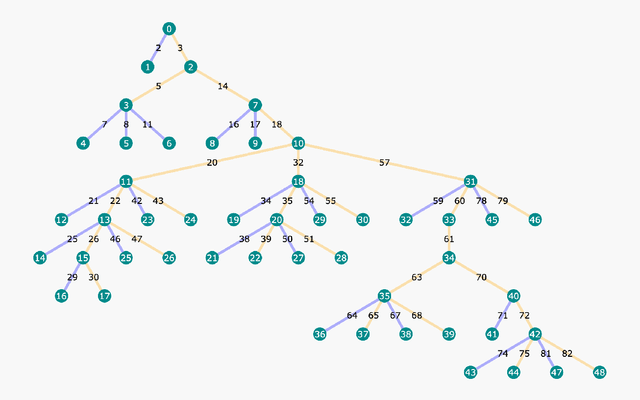

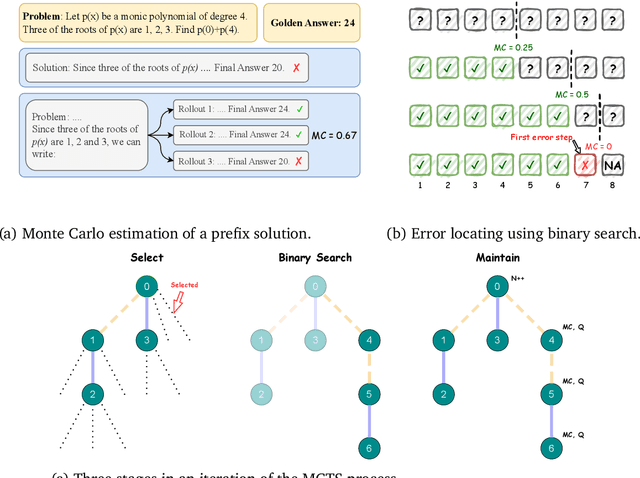
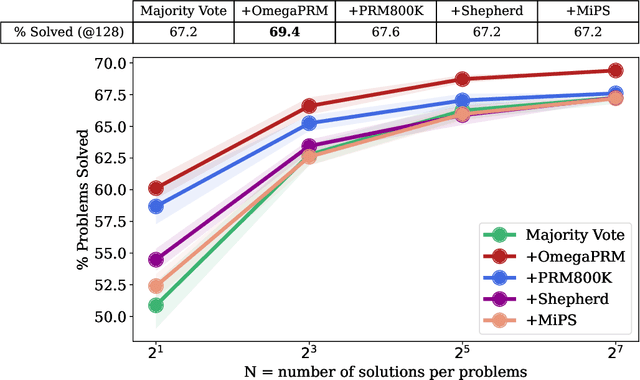
Abstract:Complex multi-step reasoning tasks, such as solving mathematical problems or generating code, remain a significant hurdle for even the most advanced large language models (LLMs). Verifying LLM outputs with an Outcome Reward Model (ORM) is a standard inference-time technique aimed at enhancing the reasoning performance of LLMs. However, this still proves insufficient for reasoning tasks with a lengthy or multi-hop reasoning chain, where the intermediate outcomes are neither properly rewarded nor penalized. Process supervision addresses this limitation by assigning intermediate rewards during the reasoning process. To date, the methods used to collect process supervision data have relied on either human annotation or per-step Monte Carlo estimation, both prohibitively expensive to scale, thus hindering the broad application of this technique. In response to this challenge, we propose a novel divide-and-conquer style Monte Carlo Tree Search (MCTS) algorithm named \textit{OmegaPRM} for the efficient collection of high-quality process supervision data. This algorithm swiftly identifies the first error in the Chain of Thought (CoT) with binary search and balances the positive and negative examples, thereby ensuring both efficiency and quality. As a result, we are able to collect over 1.5 million process supervision annotations to train a Process Reward Model (PRM). Utilizing this fully automated process supervision alongside the weighted self-consistency algorithm, we have enhanced the instruction tuned Gemini Pro model's math reasoning performance, achieving a 69.4\% success rate on the MATH benchmark, a 36\% relative improvement from the 51\% base model performance. Additionally, the entire process operates without any human intervention, making our method both financially and computationally cost-effective compared to existing methods.
Accelerating Inference of Retrieval-Augmented Generation via Sparse Context Selection
May 25, 2024



Abstract:Large language models (LLMs) augmented with retrieval exhibit robust performance and extensive versatility by incorporating external contexts. However, the input length grows linearly in the number of retrieved documents, causing a dramatic increase in latency. In this paper, we propose a novel paradigm named Sparse RAG, which seeks to cut computation costs through sparsity. Specifically, Sparse RAG encodes retrieved documents in parallel, which eliminates latency introduced by long-range attention of retrieved documents. Then, LLMs selectively decode the output by only attending to highly relevant caches auto-regressively, which are chosen via prompting LLMs with special control tokens. It is notable that Sparse RAG combines the assessment of each individual document and the generation of the response into a single process. The designed sparse mechanism in a RAG system can facilitate the reduction of the number of documents loaded during decoding for accelerating the inference of the RAG system. Additionally, filtering out undesirable contexts enhances the model's focus on relevant context, inherently improving its generation quality. Evaluation results of two datasets show that Sparse RAG can strike an optimal balance between generation quality and computational efficiency, demonstrating its generalizability across both short- and long-form generation tasks.
DRLC: Reinforcement Learning with Dense Rewards from LLM Critic
Jan 14, 2024



Abstract:Reinforcement learning (RL) can align language models with non-differentiable reward signals, such as human preferences. However, a major challenge arises from the sparsity of these reward signals - typically, there is only one reward for the entire generation. This sparsity of rewards can lead to inefficient and unstable learning. In this paper, we introduce a novel framework leveraging the critique ability of LLMs to produce dense rewards throughout the learning process. Our approach incorporates a critic language model alongside the policy model. This critic is prompted with the task description, question, policy model's output, and environment's reward signal as input, and provides token or span-level dense rewards that reflect the quality of each segment of the output. We assess our approach on three text generation tasks: sentiment control, language model detoxification, and summarization. Experimental results show that incorporating artificial dense rewards in training yields consistent performance gains over the PPO baseline with holistic rewards. Furthermore, in a setting where the same model serves as both policy and critic, we demonstrate that "self-critique" rewards also boost learning efficiency.
Spatially Adaptive Cloth Regression with Implicit Neural Representations
Nov 27, 2023



Abstract:The accurate representation of fine-detailed cloth wrinkles poses significant challenges in computer graphics. The inherently non-uniform structure of cloth wrinkles mandates the employment of intricate discretization strategies, which are frequently characterized by high computational demands and complex methodologies. Addressing this, the research introduced in this paper elucidates a novel anisotropic cloth regression technique that capitalizes on the potential of implicit neural representations of surfaces. Our first core contribution is an innovative mesh-free sampling approach, crafted to reduce the reliance on traditional mesh structures, thereby offering greater flexibility and accuracy in capturing fine cloth details. Our second contribution is a novel adversarial training scheme, which is designed meticulously to strike a harmonious balance between the sampling and simulation objectives. The adversarial approach ensures that the wrinkles are represented with high fidelity, while also maintaining computational efficiency. Our results showcase through various cloth-object interaction scenarios that our method, given the same memory constraints, consistently surpasses traditional discrete representations, particularly when modelling highly-detailed localized wrinkles.
Fusion-Eval: Integrating Evaluators with LLMs
Nov 15, 2023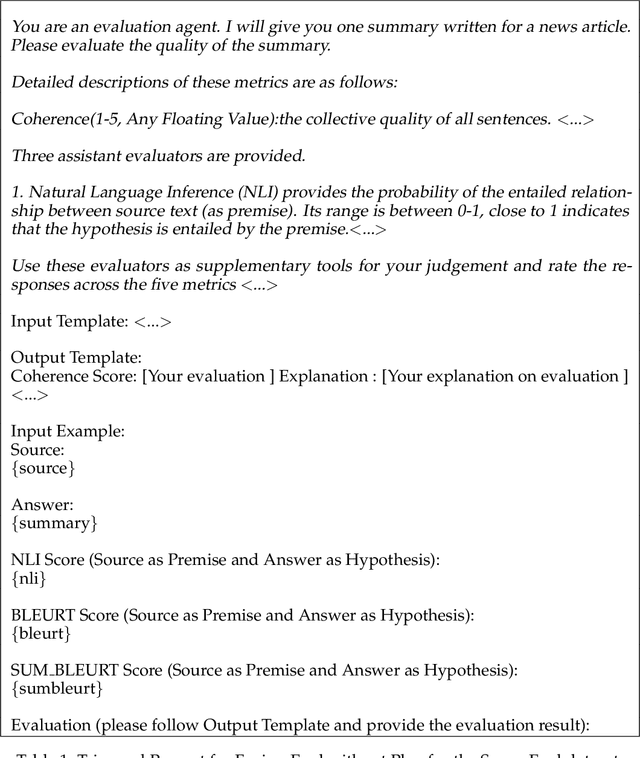
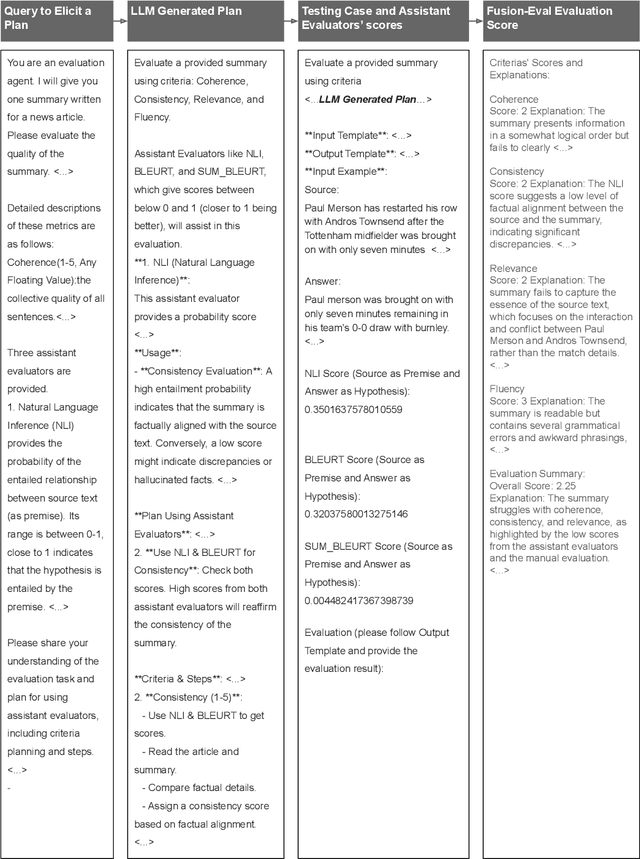
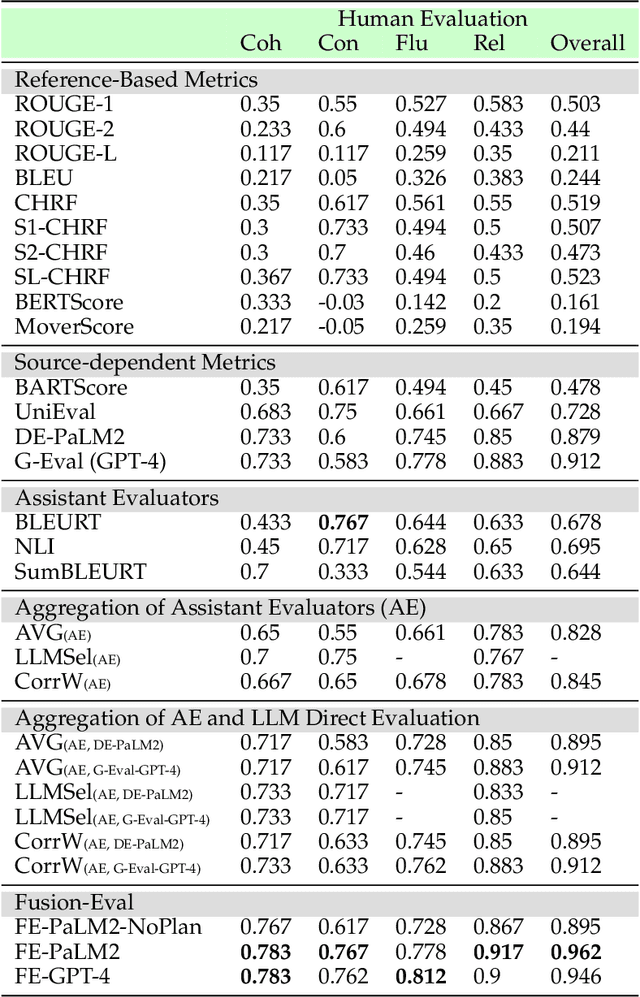
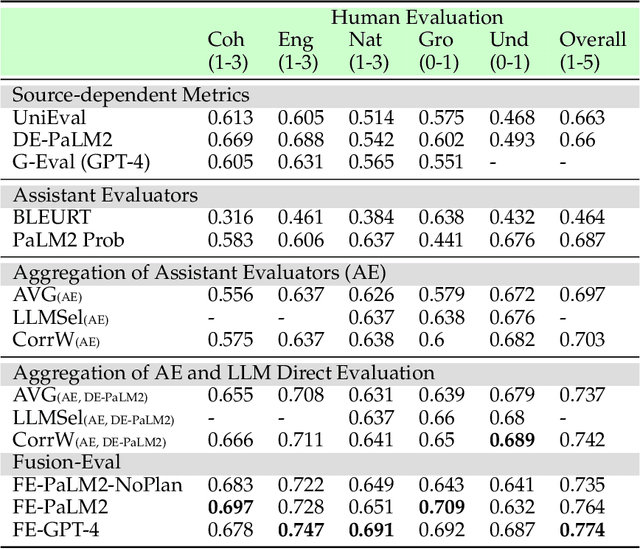
Abstract:Evaluating Large Language Models (LLMs) is a complex task, especially considering the intricacies of natural language understanding and the expectations for high-level reasoning. Traditional evaluations typically lean on human-based, model-based, or automatic-metrics-based paradigms, each with its own advantages and shortcomings. We introduce "Fusion-Eval", a system that employs LLMs not solely for direct evaluations, but to skillfully integrate insights from diverse evaluators. This gives Fusion-Eval flexibility, enabling it to work effectively across diverse tasks and make optimal use of multiple references. In testing on the SummEval dataset, Fusion-Eval achieved a Spearman correlation of 0.96, outperforming other evaluators. The success of Fusion-Eval underscores the potential of LLMs to produce evaluations that closely align human perspectives, setting a new standard in the field of LLM evaluation.
SiRA: Sparse Mixture of Low Rank Adaptation
Nov 15, 2023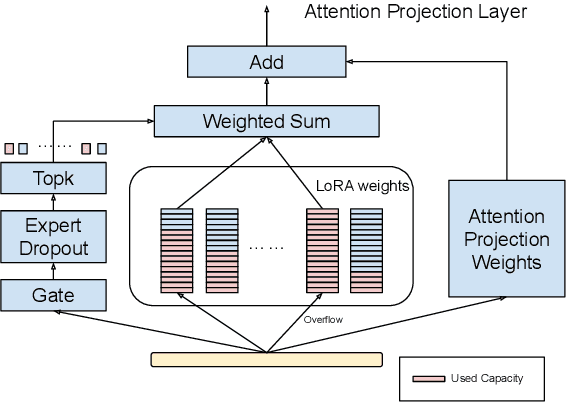



Abstract:Parameter Efficient Tuning has been an prominent approach to adapt the Large Language Model to downstream tasks. Most previous works considers adding the dense trainable parameters, where all parameters are used to adapt certain task. We found this less effective empirically using the example of LoRA that introducing more trainable parameters does not help. Motivated by this we investigate the importance of leveraging "sparse" computation and propose SiRA: sparse mixture of low rank adaption. SiRA leverages the Sparse Mixture of Expert(SMoE) to boost the performance of LoRA. Specifically it enforces the top $k$ experts routing with a capacity limit restricting the maximum number of tokens each expert can process. We propose a novel and simple expert dropout on top of gating network to reduce the over-fitting issue. Through extensive experiments, we verify SiRA performs better than LoRA and other mixture of expert approaches across different single tasks and multitask settings.
Critique Ability of Large Language Models
Oct 07, 2023

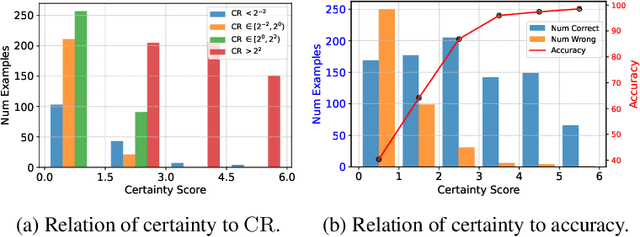

Abstract:Critical thinking is essential for rational decision-making and problem-solving. This skill hinges on the ability to provide precise and reasoned critiques and is a hallmark of human intelligence. In the era of large language models (LLMs), this study explores the ability of LLMs to deliver accurate critiques across various tasks. We are interested in this topic as a capable critic model could not only serve as a reliable evaluator, but also as a source of supervised signals for model tuning. Particularly, if a model can self-critique, it has the potential for autonomous self-improvement. To examine this, we introduce a unified evaluation framework for assessing the critique abilities of LLMs. We develop a benchmark called CriticBench, which comprises 3K high-quality natural language queries and corresponding model responses; and annotate the correctness of these responses. The benchmark cover tasks such as math problem-solving, code completion, and question answering. We evaluate multiple LLMs on the collected dataset and our analysis reveals several noteworthy insights: (1) Critique is generally challenging for most LLMs, and this capability often emerges only when models are sufficiently large. (2) In particular, self-critique is especially difficult. Even top-performing LLMs struggle to achieve satisfactory performance. (3) Models tend to have lower critique accuracy on problems where they are most uncertain. To this end, we introduce a simple yet effective baseline named self-check, which leverages self-critique to improve task performance for various models. We hope this study serves as an initial exploration into understanding the critique abilities of LLMs, and aims to inform future research, including the development of more proficient critic models and the application of critiques across diverse tasks.
Towards an On-device Agent for Text Rewriting
Aug 22, 2023



Abstract:Large Language Models (LLMs) have demonstrated impressive capabilities for text rewriting. Nonetheless, the large sizes of these models make them impractical for on-device inference, which would otherwise allow for enhanced privacy and economical inference. Creating a smaller yet potent language model for text rewriting presents a formidable challenge because it requires balancing the need for a small size with the need to retain the emergent capabilities of the LLM, that requires costly data collection. To address the above challenge, we introduce a new instruction tuning approach for building a mobile-centric text rewriting model. Our strategies enable the generation of high quality training data without any human labeling. In addition, we propose a heuristic reinforcement learning framework which substantially enhances performance without requiring preference data. To further bridge the performance gap with the larger server-side model, we propose an effective approach that combines the mobile rewrite agent with the server model using a cascade. To tailor the text rewriting tasks to mobile scenarios, we introduce MessageRewriteEval, a benchmark that focuses on text rewriting for messages through natural language instructions. Through empirical experiments, we demonstrate that our on-device model surpasses the current state-of-the-art LLMs in text rewriting while maintaining a significantly reduced model size. Notably, we show that our proposed cascading approach improves model performance.
 Add to Chrome
Add to Chrome Add to Firefox
Add to Firefox Add to Edge
Add to Edge